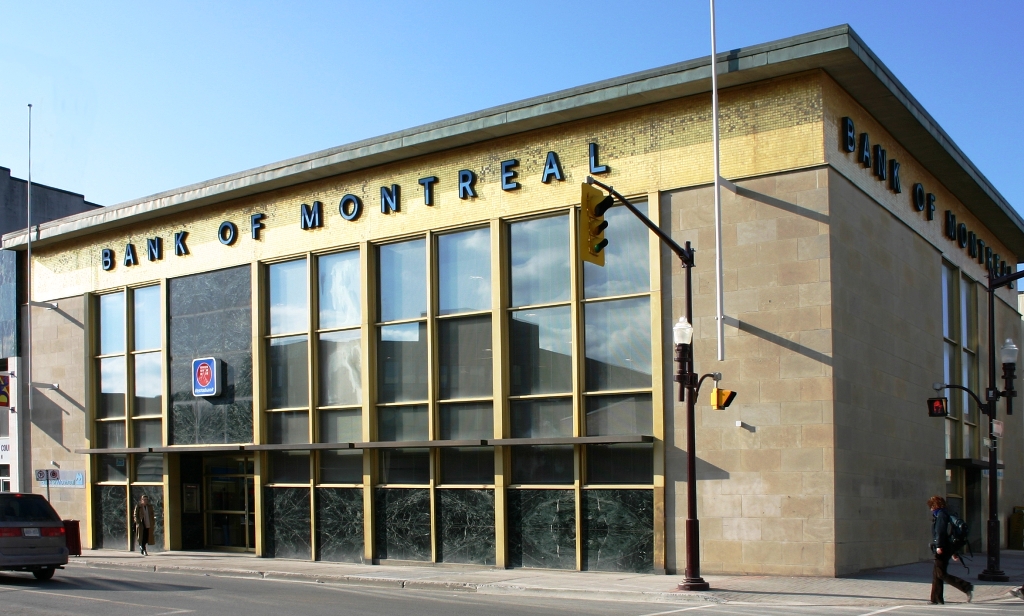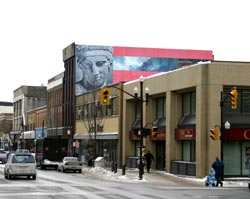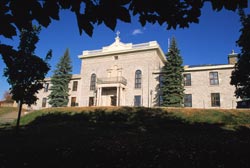Personal Finance
Peterborough has the best of both worlds. It offers all the opportunities found in larger cities while still offering the low cost of living found in smaller communities.

General information on bank accounts and personal finance is also offered by Settlement.org.
What is the cost of living in Peterborough?
The phrase “cost of living” refers to your family’s basic living expenses. This can include the cost of rent or mortgage payments for your home, utilities (services such as water, heat and electricity), telephone, television, Internet, transportation, clothing and food. The cost of living in Peterborough is generally lower than in other Ontario cities. It also varies depending on your type of home and the essential services you would like to receive.
What you can afford depends on your income. Learn about the local job market and employment strategies for new immigrants to estimate your income. Income taxes and other pay deductions can take up to 35% off your pay cheque.

Tracking your monthly expenses is an important part of managing your money. It helps you avoid spending more than you earn.
For information on the cost of living in Peterborough, please check this website.
Here, we give you an idea of what some monthly costs could be. Your monthly expenses will depend on where you live and the choices you make.
Housing
Renting – Rental amounts vary, but the average monthly rent for:
- a one-bedroom apartment was $1700 in March 2023
- a two-bedroom apartment was $1950 in March 2023
Buying – The average detached house price in 2023 was $745,000.
Transportation
An adult monthly bus pass is $66, while a single ride costs $2.75. Find a complete list of fares on the Peterborough Transit website.
The transportation section of this website provides information on the costs of owning a car.
Utilities
The cost of heat, water, and electricity varies depending on the location, size and age of your home as well as individual-usage habits. You can contact the Peterborough Utilities Group, Hydro One or Enbridge to find out the average monthly cost of water, electricity or gas.
Internet – on average $65 for basic service;
Telephone – on average $55 for basic, regular (local) service;
Television – on average $75 for basic cable service;
Other expenses to consider:
- Food
- Clothing
- Child care
- Recreational activities
- Healthcare costs not covered by OHIP
- Pet costs (veterinary care, food, general care)
What should I know about banking?
Banks, Banking Accounts, & Services
To open a bank account you must provide two pieces of acceptable Government-Issued Identification. As a new Canadian, you may also need to provide an educational or employment reference. For more information, refer to the Settlement.Org guide to opening a bank account.
You should open a bank account as soon as possible after you arrive in Canada. Most banks will not allow you to set up an account before you arrive. If you are transferring money from a bank account in your home country, be aware that this can take a long time.
You may also wish to consider banking at a credit union – a financial institution owned by its users. Credit unions offer a full range of financial products and services, and the opportunity to have a voice in how your financial institution is run. Credit unions tend to be committed to the community.
Some banks and credit unions offer financial products and services usually only available to people with Canadian credit history. For more information, please visit the websites or branches of local banks and credit unions.
Debit Card
Debit cards are sometimes referred to as INTERAC, Master, or bank cards. Debit cards are used as a form of payment that lets you make purchases using the money in your bank account. They also allow you to access your bank account through Automated Banking Machines (ABMs) or Automated Teller Machines (ATMs).
If you use the ATM or ABM of another bank, you will have to pay a fee. The fee is higher when you use a privately-owned ATM. These private machines are found in corner stores, restaurants and other places. It is cheaper to use the machines owned by your bank or credit union.
Credit Cards
If possible, do not cancel your credit cards before you come to Canada. You might need them until you get a new credit card from a local bank. Please consult the Credit Card Selector Tool to find out which card is best for you. To obtain a credit card, you are required to provide personal information.
As a new Canadian, it may be difficult to obtain a credit card because you do not have a credit history in Canada. Settlement.org provides information on how to establish a Canadian credit history. For information on credit checks and your credit rating, please see this guide from the Canada Mortgage and Housing Corporation (CMHC).
What should I know about income tax?
In Canada, income tax is administered by the Canada Revenue Agency (CRA). Anyone who receives income in Canada must submit an Income Tax and Benefit Return.
The Canadian Revenue Agency (CRA) has video presentations on understanding the Canadian tax system and what is required to complete and file your income tax and benefit return. They can be found at Benefits, credits, and taxes for newcomers and Learn about your taxes. Your employer may deduct income tax from each paycheque. A detailed explanation of the Canadian tax system can be found at Settlement.Org.
Filing an income tax return is extremely important. You need to file one each year to qualify for various tax credit programs, such as the Canada Child Tax Benefit (CCTB). A more detailed list of benefits is available on the Canada Revenue Agency site.
You will need to file your income tax return each year by April 30th. You can file by yourself or have an income tax professional complete your income tax for you. If you need help and cannot afford to pay for assistance, you may be eligible to use the services of a free tax clinic.
Where can I find financial help in Peterborough?
Temporary Financial Assistance
There are several programs that can provide temporary financial help to Peterborough residents. The Community Counselling and Resource Centre can help you access these programs. Other resources you may find helpful include:
- Social Assistance in Ontario (Ontario Works and Ontario Disability Support Program)
- City of Peterborough Social Services
- Settlement.Org
Managing Your Money
There are many resources that can help you manage your money.
The Monthly Budget Tracker provides tips on how to track your expenses.
Tips on how to save water and energy at home can help save money on your utility bills.
What else should I know?
Consumer Rights and Protection
To learn more about your rights as a consumer, visit the following websites:

- Ministry of Public and Business Services
- Consumer Protection Ontario
- Officer of Consumer Affairs
- Consumer Rights from Settlement.Org
- Consumer Advocacy
Credit Card Fraud
To protect your personal information, it is important to keep your Credit Card with you and in sight. If you think you have lost your credit card, call your credit card provider and cancel your card.
It is important that you keep important numbers of your credit card companies and/or banks should you need to call them in an emergency. For more information, refer to Settlement.Org’s guide: What Should I Know About Credit Card Fraud?
Identity Theft
Identity theft is when someone uses your personal information, such as government-issued identification, to impersonate you. If an individual succeeds in stealing your identity, they may be able to create large debts which you may be held responsible for. Please see the RCMP’s Identity Theft and Identity Fraud page.
Email and Web Fraud
Email fraud or “phishing” occurs when a legitimate-looking email is sent to a recipient from either an unknown person and/or from what appears as a “well-known” organization or website. The general intent is to ask for your confidential banking information so that the sender can get money from you under false pretenses. For information on “phishing” and “pharming” or web fraud and on how you can protect yourself visit the Ontario Ministry of Consumer Services website.
Door-to-Door Sales
If you are unsure if a particular salesperson is legitimate, contact the Better Business Bureau or the New Canadians Centre. You may also search the Consumer Beware List at the Ministry of Consumer Services to see if others have complained about a business.
For more types of scams and fraud, and to learn how to protect yourself, please see the RCMP’s Scams and Fraud page.
